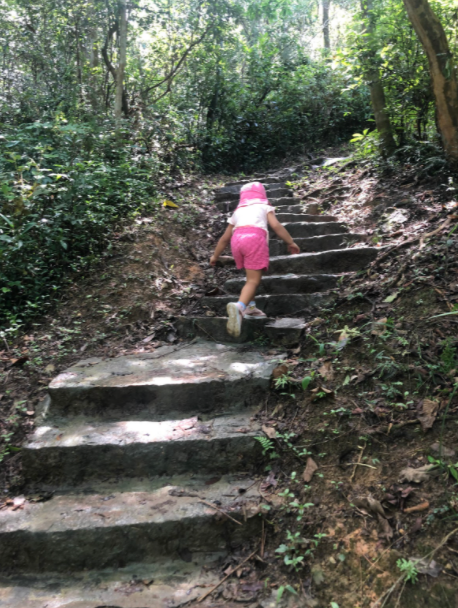Building resilience through forest education
Building resilience through forest education
My journey to the outdoors began while I was completing my Masters of Education in Early Childhood. While researching play-based learning, I came across Balanced and Barefoot by paediatric occupational therapist Angela J. Hanscom (a highly recommended read for parents and educators). It was a pivotal moment in both my parenting (yes, I’m also a mother of four!) and my teaching philosophy. Suddenly, I was transported back to my childhood of swings and roundabouts, rolling down grassy hills, making mud pies, and paddling barefoot in streams. Back then, it seemed like a normal way of life. Now, I realized how privileged I was. These days, children seem to be spending more and more time indoors and studies are showing the negative impact this can have on their physical and mental wellbeing.

These shifts are visible in the classroom as well; we are seeing a decrease in children’s stamina, and in their ability to pay attention and regulate their emotions. Studies have shown that today’s children’s physical strength does not compare favorably with children back in the 1980s. There is a rise in childhood obesity and many struggle with vestibular sense and proprioception, or simply balance and the sense that perceives the position and movement of the body. Signs of a proprioception deficit include clumsiness, dropping things, and bumping into objects. Physical development also has an impact on learning, and when children do not have an opportunity to move their bodies in a range of ways and develop their gross/fine motor skills, it can affect their concentration and academic performance.
The benefits of outdoor play are plentiful, not only physical and academic. Being outdoors, especially in nature, is good for our wellbeing, social skills, creativity, problem solving, and independence, and ignites curiosity about the world we share. In addition, it cultivates a love and appreciation for our beautiful planet. If we want our children to have a sustainable mindset, they must first have a desire to protect their environment, which grows from that passion for the natural world.
As a parent, I have had many fantastic experiences outside with my children: hiking, waterfalling, paddling in streams, climbing trees, and so much more. Hong Kong is three quarters rural and there is so much to discover. On a recent waterfall hike for example, I was able to witness my son’s problem solving skills and confidence flourish. Before Covid closures, we had spent Friday nights at a local rock climbing wall. Rock climbing walls are great for building physical strength and problem solving skills, but I find doing it outdoors is so much more exciting! On this particular adventure, my son and I were ascending the rocky Mai Dai stream to reach Tai Shui Hang waterfalls. I let my son lead the way and although we came across challenges, he was able to navigate successfully to the top. Watching his self esteem skyrocket was worth every moment of struggle! If you are interested in getting your family outdoors, it doesn’t have to be a major event. Hong Kong has an abundance of nature and there are health benefits to enjoying a family walk or sitting in the local park and just listening to the sounds of the birds singing, insects chirping, and the wind swaying in the trees.
I am excited to be working on the forest school program at Bloom Academy. Forest schools began in Scandinavia in the 1950s, where children in their early years attended forest kindergartens. The ethos has since become popular in the UK, North America, and other parts of the world. Children who have attended forest schools have demonstrated improved social skills, an ability to work cooperatively, higher self-esteem, and confidence in their abilities. In a forest school program, students will go out in nature at least once a week and participate in a range of activities from across the primary school curriculum. Any subject can be taught outdoors! In addition, students learn bushcraft skills and other outdoor pursuits. I am currently undertaking Forest Leadership Training, which is accredited by the Forest School Association in the UK and I cannot wait to use everything I have learned with my Bloom Academy students!!
There will be many uphill challenges! We can’t avoid them, but building stamina and resilience at a young age and giving children the skills they need to successfully navigate the bumps they will encounter, will prepare them for the road ahead.
More Faculty Insights
